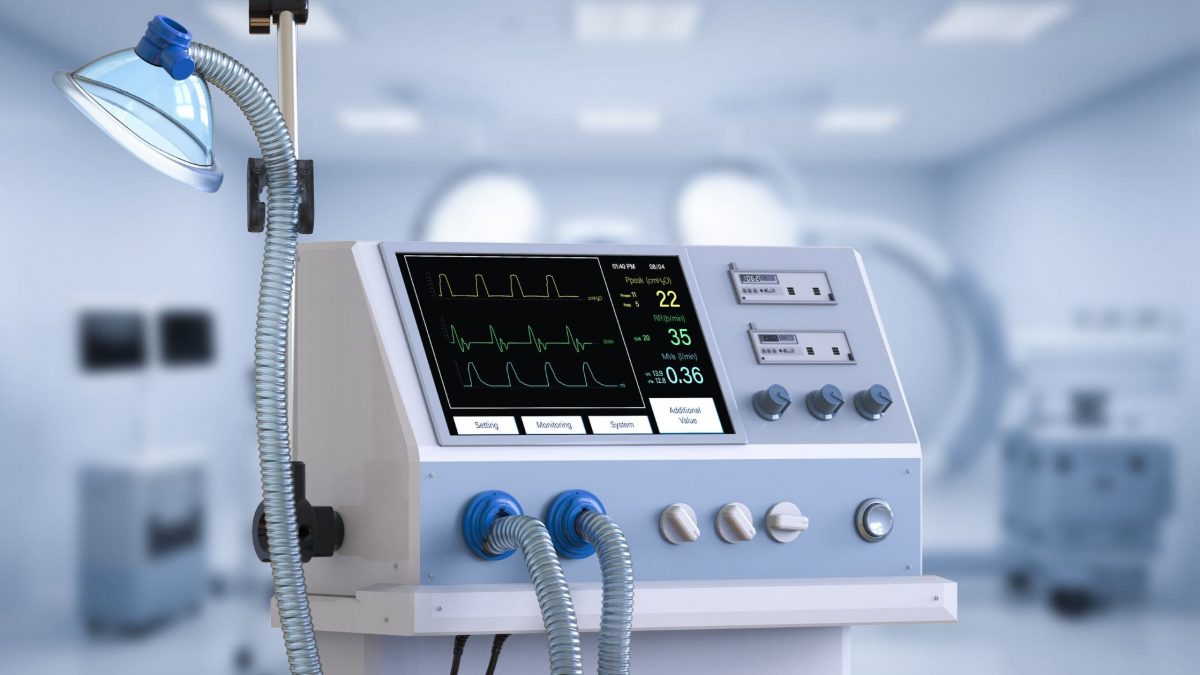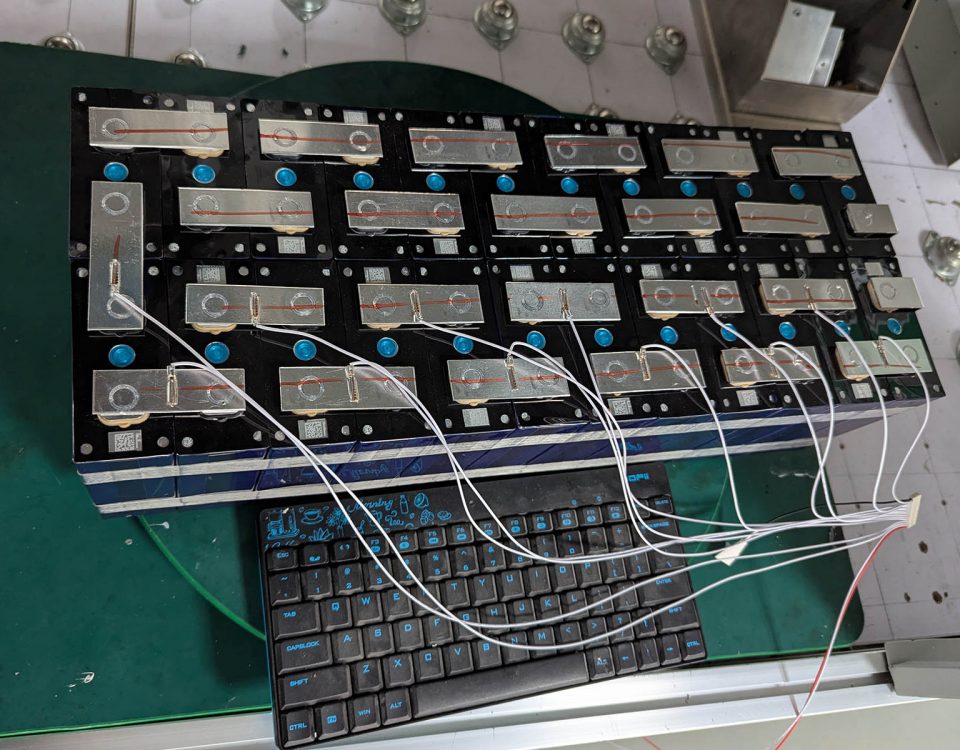ในยุคที่มีการก้าวหน้าทางการแพทย์อย่างไม่เคยมีมาก่อน อุปกรณ์ทางการแพทย์มีบทบาทสำคัญอย่างยิ่งในการช่วยชีวิต ปรับปรุงคุณภาพการดูแล และทำให้สามารถติดตามผู้ป่วยได้จากระยะไกล เบื้องหลังการทำงานที่ราบรื่นของอุปกรณ์ช่วยชีวิตเหล่านี้คือส่วนประกอบที่สำคัญอย่างยิ่ง: แบตเตอรี แบตเตอรี่ลิเธียมโดยเฉพาะอย่างยิ่ง ได้กลายเป็นกระดูกสันหลังของเทคโนโลยีทางการแพทย์สมัยใหม่ โดยให้พลังงานที่เชื่อถือได้สำหรับอุปกรณ์ต่างๆ ตั้งแต่เครื่องช่วยหายใจแบบพกพาไปจนถึงเครื่องตรวจสุขภาพแบบสวมใส่
บทความนี้เจาะลึกถึงวิธีที่แบตเตอรี่ลิเธียมกำลังเปลี่ยนแปลงภูมิทัศน์ทางการแพทย์ ข้อได้เปรียบเหนือแหล่งพลังงานแบบดั้งเดิม และข้อควรพิจารณาสำคัญในการใช้งานในสถานพยาบาล
การเพิ่มขึ้นของแบตเตอรี่ลิเธียมในอุปกรณ์ทางการแพทย์
อุตสาหกรรมการดูแลสุขภาพกำลังนำแบตเตอรี่ลิเธียมมาใช้อย่างรวดเร็วเนื่องจากประสิทธิภาพด้านพลังงานที่ไม่มีใครเทียบได้ ความน่าเชื่อถือ และการออกแบบที่กะทัดรัด เมื่อเปรียบเทียบกับเทคโนโลยีเก่า เช่น แบตเตอรี่ตะกั่ว-กรด หรือแบตเตอรี่นิกเกิล-แคดเมียม แบตเตอรี่ลิเธียมมีความหนาแน่นของพลังงานสูงกว่า ทำให้อุปกรณ์ทางการแพทย์สามารถทำงานได้นานขึ้นต่อการชาร์จหนึ่งครั้ง ในขณะที่ยังคงความสะดวกในการพกพา
จากโรงพยาบาลสู่การดูแลสุขภาพที่บ้าน แบตเตอรี่ลิเธียมเป็นแหล่งพลังงานให้กับอุปกรณ์ทางการแพทย์ที่สำคัญหลากหลายชนิด รวมถึง:
- เครื่องช่วยหายใจแบบพกพา: จำเป็นอย่างยิ่งในกรณีฉุกเฉินและสำหรับผู้ป่วยที่ต้องการการช่วยหายใจ แบตเตอรี่ลิเธียมรับประกันการทำงานอย่างต่อเนื่องไม่สะดุด
- เครื่องสูบยาแบบหยด: ใช้สำหรับจ่ายยาในปริมาณที่แม่นยำ อุปกรณ์เหล่านี้อาศัยแบตเตอรี่ลิเธียมเพื่อความถูกต้องและความน่าเชื่อถือ
- อุปกรณ์สวมใส่: เครื่องตรวจวัดสุขภาพและอุปกรณ์ติดตามการออกกำลังกายต้องพึ่งพาเทคโนโลยีลิเธียมเพื่อการใช้งานที่ยาวนานและน้ำหนักเบา
- เครื่องกระตุกหัวใจไฟฟ้า: แบตเตอรี่ลิเธียมให้พลังงานอย่างรวดเร็วและทรงพลังเมื่อเวลาเป็นสิ่งที่สำคัญที่สุด
ข้อดีของแบตเตอรี่ลิเธียมในด้านการดูแลสุขภาพ
-
ความหนาแน่นของพลังงานสูง
แบตเตอรี่ลิเธียมสามารถเก็บพลังงานได้เป็นจำนวนมากในขนาดที่เล็กและน้ำหนักเบา ทำให้เหมาะอย่างยิ่งสำหรับอุปกรณ์ทางการแพทย์แบบพกพาและสวมใส่ได้ คุณสมบัตินี้เป็นประโยชน์อย่างยิ่งสำหรับผู้ป่วยสูงอายุและผู้ป่วยที่จัดการกับโรคเรื้อรัง เนื่องจากพวกเขาสามารถพกพาอุปกรณ์ที่เล็กกว่าและไม่เทอะทะได้ -
อายุการใช้งานยาวนานขึ้น
แบตเตอรี่ลิเธียมมีอายุการใช้งานที่ยาวนานกว่าเมื่อเทียบกับแบตเตอรี่แบบดั้งเดิม ช่วยลดความถี่ในการเปลี่ยนแบตเตอรี่ คุณสมบัตินี้มีความคุ้มค่าทางเศรษฐกิจและช่วยลดการหยุดชะงักในการดูแลทางการแพทย์ที่สำคัญ -
ความสามารถในการชาร์จเร็ว
เวลาเป็นปัจจัยสำคัญในสถานพยาบาล แบตเตอรี่ลิเธียมชาร์จได้เร็วกว่าทางเลือกอื่น ๆ หลายชนิด ทำให้มั่นใจได้ว่าอุปกรณ์พร้อมใช้งานได้ทันทีที่ต้องการ -
ความเป็นมิตรต่อสิ่งแวดล้อม
แบตเตอรี่ลิเธียมหลายชนิด โดยเฉพาะอย่างยิ่งแบตเตอรี่ที่ใช้เคมีลิเธียมเหล็กฟอสเฟต (LiFePO4) เป็นมิตรต่อสิ่งแวดล้อมและสามารถนำกลับมาใช้ใหม่ได้มากขึ้น ซึ่งสอดคล้องกับเป้าหมายความยั่งยืนระดับโลก -
แหล่งจ่ายไฟเสถียร
ในการใช้งานทางการแพทย์ แม้แต่การหยุดชะงักเพียงชั่วครู่ก็สามารถส่งผลร้ายแรงได้ แบตเตอรี่ลิเธียมให้พลังงานที่เสถียรและสม่ำเสมอ ช่วยให้อุปกรณ์ช่วยชีวิตทำงานได้อย่างเชื่อถือได้
ความท้าทายและข้อพิจารณา
ในขณะที่ แบตเตอรี่ลิเธียม กำลังเปลี่ยนแปลงการดูแลสุขภาพ แต่การใช้พวกเขาก็มาพร้อมกับความท้าทาย:
- ข้อกังวลด้านความปลอดภัย
การเกิดความร้อนสูงเกินไป, การลัดวงจร, และการจัดการที่ไม่ถูกต้องอาจก่อให้เกิดความเสี่ยงได้ ผู้ผลิตและผู้ให้บริการด้านสุขภาพต้องตรวจสอบให้แน่ใจว่ามีการปฏิบัติตามมาตรฐานความปลอดภัยที่เข้มงวด - ค่าใช้จ่าย
ต้นทุนเริ่มต้นของแบตเตอรี่ลิเธียมสูงกว่าทางเลือกแบบดั้งเดิม แม้ว่าอายุการใช้งานที่ยาวนานและประสิทธิภาพการทำงานของมันจะคุ้มค่ากับการลงทุนในหลายกรณี - การกำจัดและการรีไซเคิล
เนื่องจากความต้องการแบตเตอรี่ลิเธียมเพิ่มขึ้น อุตสาหกรรมการแพทย์จำเป็นต้องนำโปรแกรมการรีไซเคิลที่มีประสิทธิภาพมาใช้เพื่อจัดการกับขยะอย่างยั่งยืน
อนาคตของแบตเตอรี่ลิเธียมในด้านการดูแลสุขภาพ
การผสานรวมเทคโนโลยีขั้นสูง เช่น อินเทอร์เน็ตของสรรพสิ่ง (IoT) และปัญญาประดิษฐ์ (AI) กำลังผลักดันขีดจำกัดของสิ่งที่แบตเตอรี่ลิเธียมสามารถทำได้ใน เครื่องมือแพทย์นวัตกรรมในอนาคตประกอบด้วย:
- แบตเตอรี่อัจฉริยะ: ติดตั้งเซ็นเซอร์และความสามารถในการตรวจสอบแบบเรียลไทม์ แบตเตอรี่อัจฉริยะจะแจ้งเตือนผู้ใช้เกี่ยวกับความล้มเหลวที่อาจเกิดขึ้นหรือความจำเป็นในการเปลี่ยนใหม่
- เคมีที่ช่วยยืดอายุการใช้งาน: นักวิจัยกำลังพัฒนาแบตเตอรี่ลิเธียมที่มีความทนทานสูงขึ้น ซึ่งช่วยลดต้นทุนและผลกระทบต่อสิ่งแวดล้อมได้มากยิ่งขึ้น
- การชาร์จแบบไร้สาย: เทคโนโลยีใหม่กำลังสำรวจการใช้การชาร์จแบบไร้สายเพื่อลดความจำเป็นในการชาร์จด้วยตนเองบ่อยครั้ง
เมื่อการดูแลสุขภาพกลายเป็นเรื่องส่วนบุคคลมากขึ้น และการดูแลจากระยะไกลยังคงเติบโตอย่างต่อเนื่อง แบตเตอรี่ลิเธียมจะยังคงเป็นรากฐานสำคัญของการนวัตกรรมทางการแพทย์
RICHYE: พันธมิตรที่คุณไว้วางใจในโซลูชันแบตเตอรี่ลิเธียม
อยู่ในตำแหน่งผู้นำของอุตสาหกรรมแบตเตอรี่ลิเธียม ริชชี่ เป็นผู้ผลิตมืออาชีพที่เชี่ยวชาญในการผลิตแบตเตอรี่สำหรับพลังงานไฟฟ้าและระบบกักเก็บพลังงานประสิทธิภาพสูง ตั้งอยู่ในเซี่ยงไฮ้ ศูนย์กลางนวัตกรรมระดับโลก RICHYE ผสานความเชี่ยวชาญทางเทคนิคกับโรงงานผลิตที่ทันสมัยเพื่อส่งมอบแบตเตอรี่ลิเธียมที่เชื่อถือได้ ปลอดภัย และมีประสิทธิภาพ
ด้วยประสบการณ์ตรงยาวนานหลายปี RICHYE โดดเด่นในการผลิตแบตเตอรี่ลิเธียมไอรอนฟอสเฟต (LiFePO4) ที่ออกแบบมาเฉพาะสำหรับการใช้งานทางการแพทย์ ความมุ่งมั่นของเราในด้านคุณภาพ ประสิทธิภาพ และความปลอดภัย ได้สร้างชื่อเสียงให้เราเป็นพันธมิตรที่เชื่อถือได้ในภูมิภาคเอเชีย แอฟริกา ยุโรป และอเมริกา
ไม่ว่าจะเป็นการให้พลังงานแก่เครื่องมือแพทย์แบบพกพา, สนับสนุนอุปกรณ์การดูแลผู้ป่วยวิกฤต, หรือช่วยให้เกิดอุปกรณ์ติดตามสุขภาพแบบสวมใส่ได้รุ่นต่อไป, แบตเตอรี่ของ RICHYE มอบประสิทธิภาพและความน่าเชื่อถือที่ไม่มีใครเทียบได้. เราตั้งตารอที่จะร่วมมือกับผู้นำในอุตสาหกรรมเพื่อขับเคลื่อนการก้าวหน้าทางเทคโนโลยีทางการแพทย์.
บทสรุป: บทบาทสำคัญในระบบสาธารณสุขสมัยใหม่
แบตเตอรี่ลิเธียมไม่ได้เป็นเพียงแหล่งพลังงาน เครื่องมือแพทย์—พวกมันกำลังเปิดโอกาสใหม่ ๆ ในการให้บริการทางการแพทย์ ตั้งแต่ความหนาแน่นของพลังงานที่สูงไปจนถึงอายุการใช้งานที่ยาวนาน แบตเตอรี่เหล่านี้ได้พิสูจน์แล้วว่ามีความจำเป็นอย่างยิ่งในภาคส่วนที่ความน่าเชื่อถือและความแม่นยำเป็นสิ่งสำคัญสูงสุด
เมื่อเทคโนโลยีพัฒนาอย่างต่อเนื่อง บทบาทของแบตเตอรี่ลิเธียมจะยิ่งเพิ่มมากขึ้น สนับสนุนนวัตกรรมที่ช่วยปรับปรุงผลลัพธ์ของผู้ป่วยและปฏิวัติการดูแลรักษา ด้วยพันธมิตรที่เชื่อถือได้เช่น RICHYE ที่ขับเคลื่อนความก้าวหน้าในเทคโนโลยีแบตเตอรี่ อนาคตของการดูแลสุขภาพจะสดใสกว่าที่เคย
สำหรับผู้เชี่ยวชาญทางการแพทย์และผู้ผลิต การเข้าใจและยอมรับศักยภาพของแบตเตอรี่ลิเธียมไม่ใช่เพียงแค่ทางเลือก แต่เป็นความจำเป็นในการรักษาความเป็นผู้นำในอุตสาหกรรมที่เปลี่ยนแปลงอยู่ตลอดเวลา




